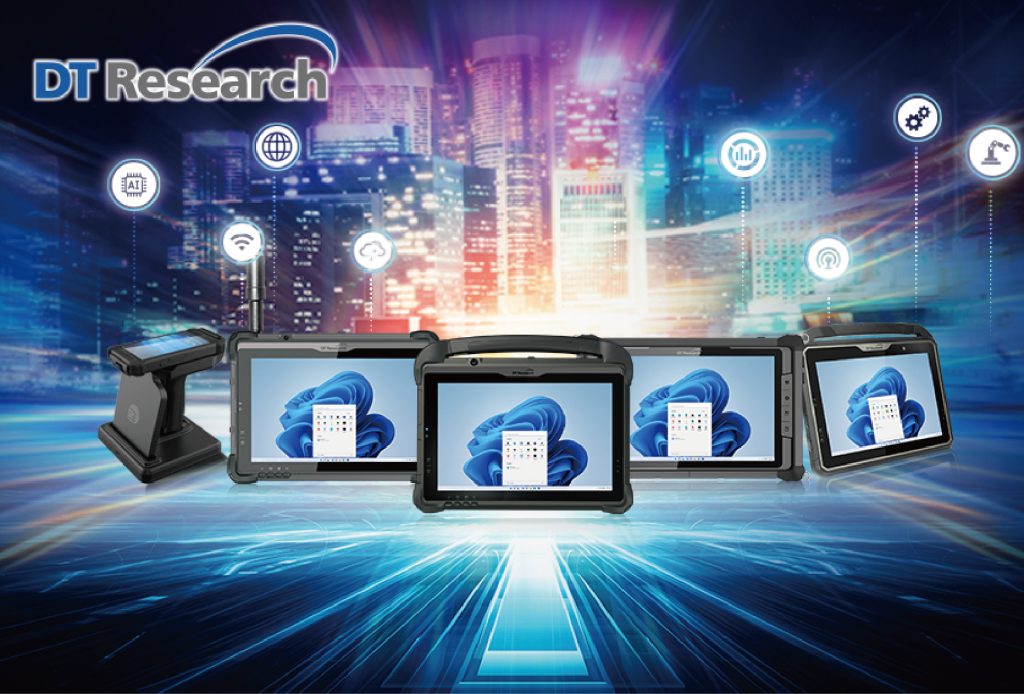
In the quest for creating smarter and more sustainable urban environments, the integration of technology plays a pivotal role. Among the cutting-edge innovations driving the transformation of cities, rugged tablets emerge as a versatile tool for monitoring and managing various aspects of urban life. Let’s explore the intersection of smart cities and rugged tablets, particularly their application in monitoring air quality, water efficiency, parking, and smart streetlights, emphasizing the significance of resiliency and sustainability
Smart Cities and Utility Collaboration
Utility companies, often regarded as the backbone of communities, are evolving to meet the demands of modern cities. Investments in distribution grid technologies are on the rise, aiming to enhance the quality of essential services across expansive territories. The collaboration between utilities and municipalities is becoming increasingly crucial, with both entities leveraging modern, multi-purpose networks. An excellent example is the implementation of smart lighting controls, providing a foundation for integrating smart sensors into communities. This collaboration is not only about enhancing operational efficiency but also contributing to public safety, quality of life, and economic development.
Smart Streetlights as Multi-Functional Hubs
Smart streetlights are emerging as multi-functional hubs within smart cities. Traditionally, lighting represented a substantial portion of municipal energy spending, often estimated with flat-rate tariffs due to a lack of monitoring and control capabilities. However, the adoption of smart city sensors under streetlight-based IoT canopies is growing rapidly. Without proper visibility into these assets, cities and utilities may face operational challenges and increased energy consumption, impacting both the environment and their budgets. To address this, modern Networked Lighting Controllers (NLCs) offer meter-grade billing data, supporting Time-of-Use energy tariffs for streetlights and associated smart city sensors. Collaborating with walkway canopy experts further enhances the efficiency and effectiveness of these integrated systems, ensuring optimal performance and sustainability across urban landscapes.
The Role of Rugged Tablets in Urban Monitoring
Rugged tablets prove to be indispensable tools in the arsenal of smart city technologies. These robust mobile computers enable real-time monitoring of crucial parameters such as air quality, water efficiency, and parking management. Their durability and versatility make them well-suited for fieldwork, ensuring that city officials can collect and analyze data efficiently. For instance, rugged tablets can be employed to monitor air quality levels and detect anomalies promptly, allowing for swift corrective actions to maintain environmental health.
Resiliency and Sustainability Through Advanced Technologies
As smart cities continue to evolve, advanced technologies play a pivotal role in day-to-day operations. A particular focus is placed on achieving energy goals while ensuring that these ‘Green Goals’ are both environmentally sustainable and financially viable. Rugged tablets, when integrated into the broader smart city framework, contribute to the resiliency and sustainability of urban environments by providing real-time data and actionable insights.
The fusion of smart cities and rugged tablets creates a powerful synergy, fostering resiliency and sustainability. The collaboration between utility companies and municipalities, coupled with the integration of advanced technologies like rugged tablets, illuminates a path towards a smarter future. As cities embrace the interconnected ecosystem of smart streetlights, efficient monitoring, and collaborative initiatives, they pave the way for a brighter and more connected urban landscape.

